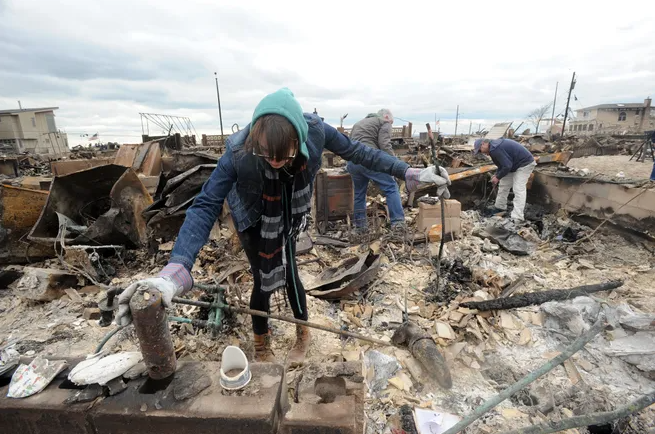Is Hurricane Helene likely to strike my town? How terrible is it going to get?
These are the actual questions that many of us on the Gulf Coast are asking right now.
With Hurricane Helene anticipated to build and intensify fast in the Gulf of Mexico, it’s no surprise that Florida and the surrounding areas are on high alert.
This storm might be a major one. But here is what we know so far—and how you can prepare.
What is Hurricane Helene?
Hurricane Helene is expected to develop from the tropical disturbance designated as Potential Tropical Cyclone Nine. It is now spinning in the western Caribbean, but is forecast to gain power when it moves into the warm waters of the Gulf of Mexico.
Meteorologists expect rapid intensification, which means Helene could quickly evolve from a tropical storm to a major hurricane (Category 2 or 3).
Why should you care?
Because this hurricane is expected to hit Florida’s Gulf Coast later this week, bringing devastating winds, heavy rain, and catastrophic storm surges.
If you live somewhere between Florida and eastern Louisiana, this is something to keep an eye on. The threat is real.
Key Facts About Hurricane Helene
Here’s the deal: Hurricane Helene could hit hard. What we know now:
Formation: The storm is expected to become a hurricane by midweek.
Track: Aiming for the eastern Gulf Coast, with Florida being the most likely target.
Strength: Likely to reach Category 2 or 3, with sustained winds of above 100 mph.
Landfall is expected later this week, possibly on Thursday or Friday.
Evacuation: Some localities are already preparing. Florida has declared a state of emergency in 41 counties.
That seems intense, right?
However, it is not all terrible news.
We have time to prepare. And being prepared could mean the difference between remaining safe and being caught off guard.
Key Facts About Hurricane Helene
Here’s the deal: Hurricane Helene could hit hard. What we know now:
Formation: The storm is expected to become a hurricane by midweek.
Track: Aiming for the eastern Gulf Coast, with Florida being the most likely target.
Strength: Likely to reach Category 2 or 3, with sustained winds of above 100 mph.
Landfall is expected later this week, possibly on Thursday or Friday.
Evacuation: Some localities are already preparing. Florida has declared a state of emergency in 41 counties.
That seems intense, right?
However, it is not all terrible news.
We have time to prepare. And being prepared could mean the difference between remaining safe and being caught off guard.
How to Prepare for Hurricane Helene
To summarize, if you are in the line of the storm, there are steps you can do right now to safeguard yourself and your family.
This is a simple checklist:
Stock up on supplies.
Water (at least one gallon per person every day for three days).
Non-perishable foods.
Flashlights, batteries, and candles.
A first aid kit.
Portable phone chargers.
Keep important documents (ID, insurance papers) in a waterproof bag.
Prepare for power outages:
Fill up your gas tank (pump may be disconnected).
Get cash from the bank (ATMs may not operate).
Charge your devices today.
Protect your house:
Bring in outside chairs or anything that may fly away.
Board up windows if you are in the straight route.
Clear the gutters and drains to avoid floods.
Know your evacuation.
What Areas Will Be Affected?
So, who is in the bullseye? Right present, computer models indicate that Florida’s Gulf Coast will bear the brunt of this storm.
But let’s be clear: the entire Gulf region should remain on high alert.
From Tampa Bay to New Orleans, everyone along the coast might be affected, particularly by severe seas and storm surges.
Even if the storm does not make landfall in your area, you may still experience its effects, particularly heavy rain and probable flooding inland.
Why is Hurricane Helene So Dangerous?
Here’s the kicker: the Gulf of Mexico is currently unusually warm. And that’s like hurricane gasoline.
Warm waters enable hurricanes to intensify quickly. This is what meteorologists are concerned about with Helene.
In just a few hours, it could transform from a chaotic system to a full-fledged hurricane.
And as it grows stronger, it will pose some major threats:
High winds can bring down electrical wires and trees.
Storm surges can flood coastal areas.
Heavy rains that cause flash flooding.
This isn’t your typical rainstorm; it’s a life-threatening situation.
When Will Hurricane Helene Make Landfall?
Forecasters predict Helene will make landfall later this week, potentially as early as Thursday.
The exact location is still unknown because hurricanes can move. However, Florida’s Big Bend region is currently in the crosshairs.
If you live in Florida, now is the time to prepare. Do not wait until the last minute.
FAQs About Hurricane Helene
Q: Will Hurricane Helene strike Florida?
A: Yes, Florida is the most likely place to receive a direct strike, particularly along the Gulf Coast.
Q: How strong will Hurricane Helene become?
A: Hurricane Helene could reach Category 2 or 3 before making landfall, with winds exceeding 100 mph.
Q: When is it anticipated to make landfall?
A: The storm could reach landfall as early as Thursday, depending on its path.
Q: Should I evacuate?
A: If local officials issue an evacuation order, obey them. Otherwise, stay put, but be prepared for power disruptions and floods.
How Can I Stay Safe During the Hurricane?
If you’re riding out the storm, here are some additional tips:
Stay indoors and away from windows.
Prepare enough food and water to last at least three days.
Avoid driving through flooded areas—just a few inches of water might sweep your automobile away.
Keep a battery-powered radio nearby in case the power goes out.
If you need to evacuate, do so quickly. You don’t want to get stuck in traffic during the storm.
Hurricane Helene and Climate Change
It’s no secret that hurricanes are getting stronger and more frequent.
Experts attribute this to climate change. The warm waters of the Gulf of Mexico are significantly contributing to the intensification of storms such as Helene.
Hurricanes can build up quickly and become more powerful when they receive additional fuel in the form of warm water.
This isn’t a one-time occurrence; it’s something we’ll certainly see more of as the world heats.
The Final Word on Hurricane Helene
Hurricane Helene is not a joke.
If you live in the Gulf region, now is the time to prepare. Stock up, safeguard your home, and devise a strategy for your family.
This storm could cause significant damage, particularly given its potential for quick intensification.
Stay informed, prepared, and—most importantly—safe.



